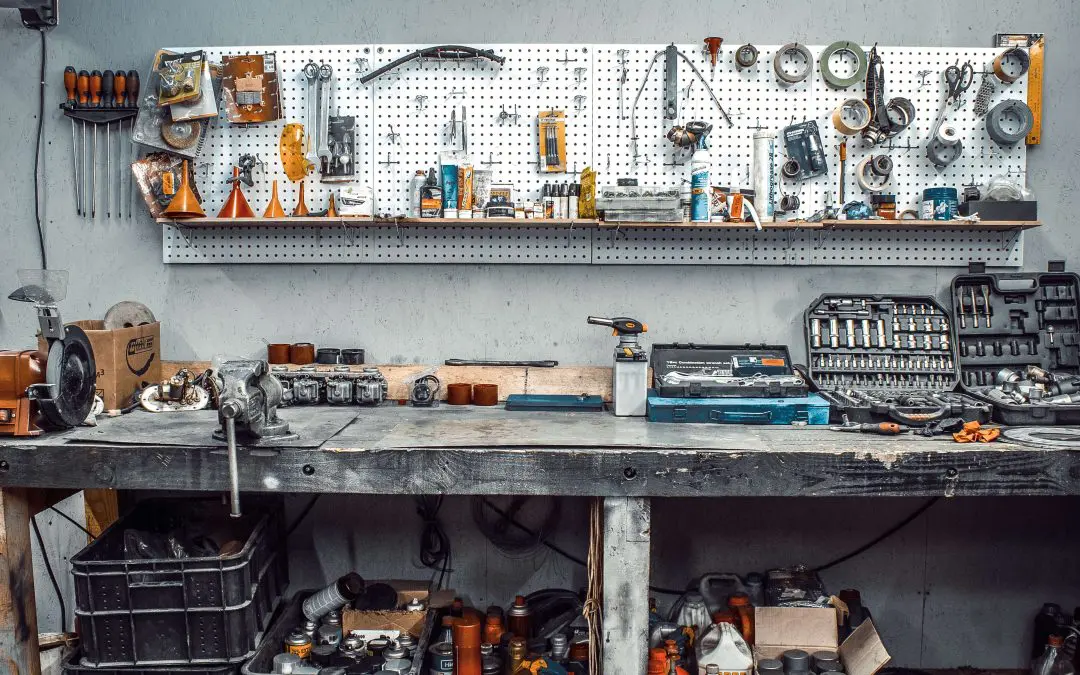Creating a home workshop is a rewarding investment for homeowners who enjoy hands-on projects. Whether you’re an experienced craftsman or just starting to explore DIY projects, having a designated space equipped for your needs will increase your productivity and creativity. A well-designed home workshop makes your projects easier and keeps your tools organized so you have everything you need right at your fingertips. This post will guide you through how to build a home workshop.
How to Build a Home Workshop: Choose the Right Space
The first step in building your home workshop is choosing the right location. Ideally, this should be a space that’s quiet and separate from main living areas. Garages, basements, or even a dedicated shed are popular options. Consider the types of projects you plan to work on—will you need plenty of room for large tools, or are you more focused on smaller, detail-oriented work? A space with ample natural light is preferable, but it’s not always necessary. Confirm that the area has good ventilation and enough electrical outlets to power your tools.
Work Surface and Layout
Your workbench is the heart of your workshop, so it’s important to choose or build one that suits your needs. It should be sturdy and large enough to handle your most common tasks. Adjustable height options are worth considering to reduce strain on your back and legs during long projects.
Think carefully about the layout of your workshop and organize it to enhance your workflow. Commonly used tools should be easily accessible. If you frequently work on large pieces, have plenty of open floor space. For projects that require fine detail, a smaller, well-lit section of your workbench will be invaluable.
Lighting and Electrical Setup
Adequate lighting is crucial for safety and precision in your workshop. Overhead lighting is great for general visibility, but you may also need task lighting for more intricate work. Adjustable lamps or LED strips along your workbench can provide focused illumination.
Your electrical setup needs to accommodate the tools you plan to use. Many workshops require multiple power tools running simultaneously, so consider installing additional outlets or a heavy-duty extension cord reel to reduce the risk of tripping over wires. A dedicated circuit may be needed for more power-intensive tools like table saws or air compressors.
Tool Storage and Organization
Good tool organization will improve your efficiency. Pegboards are a popular choice for keeping commonly used tools within arm’s reach. Cabinets or drawers can house smaller items like screws, nails, and other hardware. If you’re working in a smaller space, try vertical storage solutions to make the most of your square footage. Label everything to keep your tools organized and easily accessible.
Safety Considerations
Safety is everything when working with power tools and machinery. Make sure your workshop well-ventilated. Installing a fire extinguisher within easy reach is highly recommended. Proper safety gear, including goggles, gloves, and ear protection, should be readily available.
Keep your workshop clutter-free to reduce the risk of accidents. Sharp tools should be stored securely, and power cords should be coiled when not in use. A first-aid kit should be a staple in any workshop, so verify it’s stocked and accessible.
Build a Home Workshop with Climate Control and Ventilation
Your workshop should be a comfortable environment for you to work in year-round. In colder climates, a space heater may be necessary, while in warmer areas, a fan or air conditioning will help regulate the temperature. A dust collection system or even just a shop vacuum will make a significant difference in keeping your air and workspace clean.
Your home workshop will be a well-thought-out space that promotes efficiency, safety, and enjoyment. Follow these tips and watch your DIY dreams come to life!
How to Build a Home Workshop FAQs
What are the essential tools for a home workshop?
A hammer, screwdriver set, power drill, and measuring tape are must-haves for a home workshop. Additional tools will depend on your specific needs.
Do I need special ventilation for my workshop?
Yes, especially if you plan on working with wood, paint, or chemicals that produce fumes or dust. Proper ventilation will protect your health and your workspace.
How can I make my workshop more efficient?
Organization is key. Invest in storage solutions like pegboards and labeled cabinets. Good lighting and an efficient layout will also improve your workflow.
Legacy Property Inspections provides home inspections to customers in Southeast Georgia. If you’re buying or selling a home, contact us to schedule our services.

